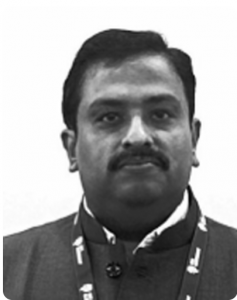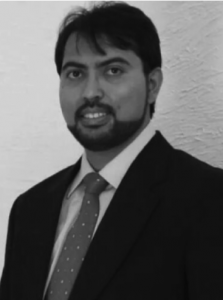Keynotes
Applications and Challenges of Artificial Intelligence with Edge Systems in Promoting the Sustainable Development Goals
Arun Kumar Sangaiah (Senior Member, IEEE) received his Ph.D. from the School of Computer Science and Engineering, Vellore Institute of Technology, India, in 2014. He has served as a Visiting Scientist at the Chinese Academy of Sciences (CAS), Beijing, and as a Visiting Researcher at Université Paris-Est, France. He is currently a Full Professor at National Yunlin University of Science and Technology, Taiwan. His research has been supported by several international projects, and he has published over 300 journal articles, 11 edited books, and one patent. Dr. Sangaiah has received multiple honors including the Clarivate Highly Cited Researcher, Yushan Young Scholar fellowship, and PIFI-CAS fellowship. He also serves as Editor-in-Chief and Associate Editor for various ISI journals.
Abstract
This keynote addresses the transformative potential of Artificial Intelligence (AI) and edge systems in accelerating progress toward the United Nations Sustainable Development Goals (SDGs). By bringing intelligence closer to data sources, edge-enabled AI enhances real-time decision-making, resource efficiency, and sustainability across diverse sectors. The talk highlights practical applications such as AI-driven solutions for sustainable agriculture, biomass estimation, and water quality prediction—demonstrating how technology can support ecological balance and societal well-being. It also examines key challenges, including data quality and accessibility, ethical and regulatory considerations, and the critical need for locally adaptable, inclusive approaches. Through these perspectives, the keynote underscores how context-aware, interdisciplinary innovation at the intersection of AI and edge computing can serve as a powerful catalyst for sustainable development worldwide.

Prof. Arun Kumar Sangaiah
National Yunlin University of Science and Technology, Taiwan

Prof. Muhammad Tariq
National University of Computer and Emerging Sciences (NUCES), Pakistan
Illuminating the Black Box: The New Era of Explainable AI in Critical Infrastructure
Muhammad Tariq (Senior Member, IEEE) received his M.S. from Hanyang University, South Korea, and his Ph.D. from Waseda University, Japan, as a MEXT Scholar. He is a Professor and Head of the School of Engineering at NUCES, Islamabad, and a Visiting Research Collaborator at Princeton University, USA. His research covers IoT, network science, digital twins, cybersecurity, and smart grids, with numerous publications in top IEEE journals. He has also been recognized among Stanford University’s list of the world’s top 2% scientists.
Abstract
- Clinical decision support systems in healthcare,
- Solar power forecasting and battery SoC/SoH estimation in renewable energy,
- Fault detection, anomaly prediction, and load balancing in smart grid systems, and
- Decision transparency and risk assessment in intelligent transportation networks.


